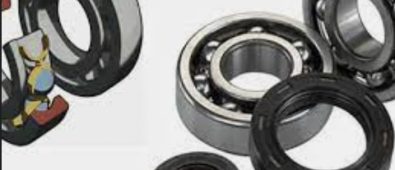Typically, purchasing a car is an exciting event. However, if your new vehicle fails to perform as expected, it could be a horrible experience. When a car dealer gives you a lemon, how could you acquire the “lemonade” of a fully functional vehicle and potentially even a cash settlement?
A Brief History of Lemon Laws
In the nineteenth century, the term “lemon” was used to refer to unpleasant persons or things, owing to the lemon’s sour flavor. Eventually, the same term began to be used to refer to anything that is not properly working. Thus, we now refer to non-functioning cars, trucks, motorbikes, and recreational vehicles (RVs) as lemons. Lemons, of course, are legal terms that refer to vehicles that fail to perform properly shortly after being sold by a dealer. Indeed, all fifty states of America have enacted lemon legislation for motorized cars.
What Does the Lemon Law Cover?
A lemon car is one that, although acquired quickly, requires repairs, typically to systems that are potentially dangerous if they fail to function properly or are required for the vehicle to function at all. The engine, transmission, as well as brakes are frequently included in this category. Unfortunately, while problems with the air conditioner, a radio, or other fancy or comfort items are inconvenient, they typically do not qualify for protection with lemon laws.
Application of Lemon Law For Insurance Companies
Insurance companies are not subject to lemon law and are typically not liable for compensating drivers who purchase lemon vehicles. However, if you purchased insurance for your lemon, you could try to get reimbursed for the money for your insurance payments from the defendant during the negotiation process or court proceedings. Keep in mind that the primary objective is to get back to as close to the state you would be in if you had not been sold the lemon car so that all of the additional expenses, such as insurance, can factor into that equation.
What Am I Supposed to Do with the Lemon Car?
When you discover the car is lemon, you must act quickly. Federal lemon rules allow the manufacturer three to four tries to repair the defect, often during a 12-month period. Certain state statutes provide for significantly lower time frames for action. If the issue is not resolved within the specified time frame, it would be then high time to file a complaint.
Irrespective of whether your vehicle is a lemon or not, you must always save all documents, particularly receipts, estimates, and everything else relating to the vehicle’s service and repairs, as well as attempts to repair any malfunctioning components. This can be a big help in establishing the continuous nature of the malfunctioning car in the scope of a lemon lawsuit. In other situations, these documents may help establish the repair and maintenance history for legal grounds in the case of a car accident or to increase the vehicle’s resale value.
Furthermore, it is critical that you request in writing that the manufacturer execute repairs within the statutory repair period. It may be prudent to retain the services of a lemon law attorney to help you with your request, as it may provide the groundwork for a potential lawsuit. You may wish to submit similar written requests every time you bring the car in for repairs as well, to establish a record of both the number of repairs and the manufacturer’s repeated failure to provide a lasting repair. Make sure to have a signature from the manufacturer confirming receipt of your notice that will serve as your documented evidence that they received it.
Should I Hire A Lemon Law Attorney?
The primary benefit of hiring a lemon law attorney is that this expert is familiar with lemon laws and may take the claim on a contingency fee basis, requiring the automobile manufacturer to cover your legal fees. Moreover, a lemon law attorney will be able to locate the appropriate expert witnesses to support your case, and because state laws vary, they would be familiar with all of the details necessary.
To avoid purchasing a lemon, the following steps should be taken:
- Check and test drive
Before you purchase a vehicle, perform a full inspection of it. Keep an eye out for defects or damages to both the vehicle’s exterior and interior. Make sure that you feel secure and comfortable behind the wheel of the vehicle, particularly if it is new, as this is crucial to your safety. Throughout the test drive, keep an ear out for any strange sounds, such as brake screeches, loud air rushing, and grinding noises.
If the dealer refuses to allow you to have a test drive, this will certainly be a warning flag that they are concealing information from you. It is a good idea to take the vehicle out on the road for the test drive, rather than just around the parking lot so that you can assess items like vehicle suspension, acceleration speed, and braking system.
- Inquire about the title condition
If you are purchasing a used vehicle, it is critical to verify the title to know whether the vehicle has been involved in any accidents. It is much simpler to acquire it now than it was in the past.
- Inspect the car prior to purchase
If you are interested in purchasing a secondhand car, have it thoroughly inspected prior to payment. The technician will inform you of any severe problems with the car and must be able to assess whether the vehicle should be categorized as a lemon.
Conclusion
Each year, tens of thousands of lemons are being sold to naive purchasers. While federal law governs lemons, every state has its own set of restrictions and requirements. If you do purchase a car that you believe is a lemon you would need to act quickly. You have legal options and it is recommended seek help from lemon law attorneys to assist you in obtaining the justice you deserve – at little or no expense to you.



